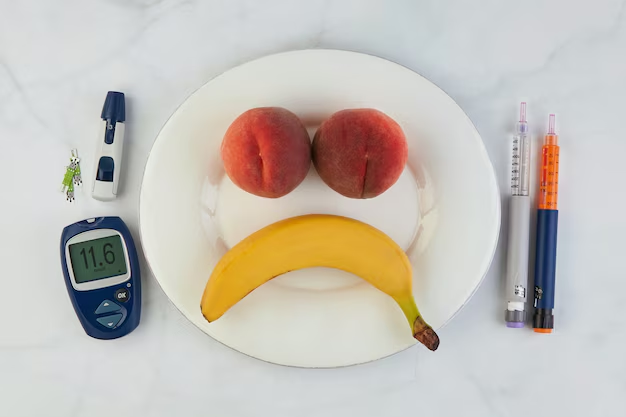Your Guide to Should Diabetics Eat Fruit
What You Get:
Free Guide
Free, helpful information about Diabetes FAQ and related Should Diabetics Eat Fruit topics.
Helpful Information
Get clear and easy-to-understand details about Should Diabetics Eat Fruit topics and resources.
Personalized Offers
Answer a few optional questions to receive offers or information related to Diabetes FAQ. The survey is optional and not required to access your free guide.
Can Diabetics Enjoy Fruit? Discover What You Need to Know
For many diabetics, the question of whether to include fruit in their diet can be both confusing and concerning. After all, fruit contains natural sugars, prompting some to wonder if it could lead to unwanted blood sugar spikes. However, the truth is that fruits can be a healthy and beneficial component of a diabetic’s diet when chosen wisely and consumed in moderation.
The Sweet Truth About Fruit and Diabetes
Fruits are packed with essential nutrients like vitamins, minerals, and fiber, which are vital for overall health. Fiber is particularly beneficial for diabetics because it helps slow down the absorption of sugar, thereby preventing sharp spikes in blood glucose levels.
Not all fruits are created equal when it comes to their impact on blood sugar. The key is to choose fruits with a low glycemic index (GI), which have a lesser effect on blood sugar levels. Some low-GI fruits include:
- 🍏 Apples
- 🍓 Berries (strawberries, blueberries, raspberries)
- 🍊 Oranges
- 🍒 Cherries
- 🍑 Peaches
These fruits not only help maintain stable blood sugar but also provide a plethora of nutrients that support heart health and proper body function.
Portion Control and Combining Foods
When incorporating fruit into your diet, portion control is crucial. Aim for a serving size that fits within your carbohydrate goals for the meal or snack. Pairing fruits with proteins or healthy fats can also mitigate sugar absorption. For instance, enjoy apple slices with peanut butter or pair berries with Greek yogurt.
Fruits to Approach with Caution
While fruit is generally a healthy option, some fruits should be consumed more cautiously due to their higher glycemic index. Bananas, grapes, and watermelon tend to raise blood sugar more quickly than their low-GI counterparts. This doesn’t mean they must be entirely avoided, but rather enjoyed in smaller portions or less frequently.
Beyond Nutrition: Financial and Social Support for Diabetes Management
Managing diabetes extends beyond just dietary choices. The financial burden of medications, routine screenings, and healthy foods can be significant. Luckily, there are a number of resources available to help relieve the stress and financial strain often associated with diabetes care.
Financial Assistance Programs
- 🏥 Government Aid Programs: Many governments offer subsidies or free healthcare services specifically for individuals with chronic conditions like diabetes.
- 💳 Drug Discounts and Coupons: Pharmaceutical companies often provide discount cards for diabetes medications.
- 📈 Insurance Solutions: Look into comprehensive health plans that cover diabetes care essentials, reducing out-of-pocket expenses.
Educational Opportunities
- 🎓 Online Courses and Workshops: Local diabetes associations often offer free or low-cost classes to better manage your condition.
- 📚 Dietitian Consults: Many insurance plans now cover visits to dietitians, who can offer personalized advice on managing diabetes effectively.
Simple Steps to Financial Relief
- 🏦 Budgeting Tools: Use apps to track medical expenses and find areas where you can save money.
- ✉️ Debt Relief Options: If healthcare costs have led to financial strain, consider speaking with a credit counselor who specializes in medical debt.
- 📇 Credit Card Solutions: Look for credit cards with medical expense benefits, offering cashback or lower interest rates for healthcare costs.
By understanding which fruits are best suited for your diet and knowing where to turn for financial assistance, you can manage diabetes more effectively and with less stress. Making informed choices allows you to take control of your health, ensuring long-term well-being and a better quality of life.
What You Get:
Free Diabetes FAQ Guide
Free, helpful information about Should Diabetics Eat Fruit and related resources.

Helpful Information
Get clear, easy-to-understand details about Should Diabetics Eat Fruit topics.

Optional Personalized Offers
Answer a few optional questions to see offers or information related to Diabetes FAQ. Participation is not required to get your free guide.


